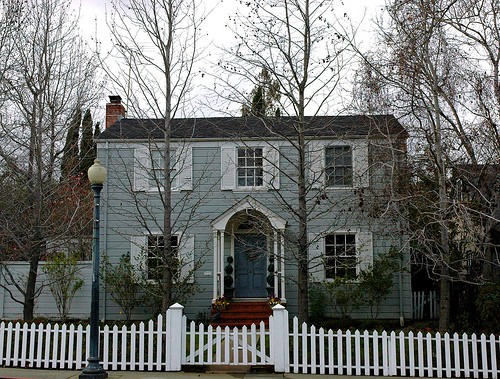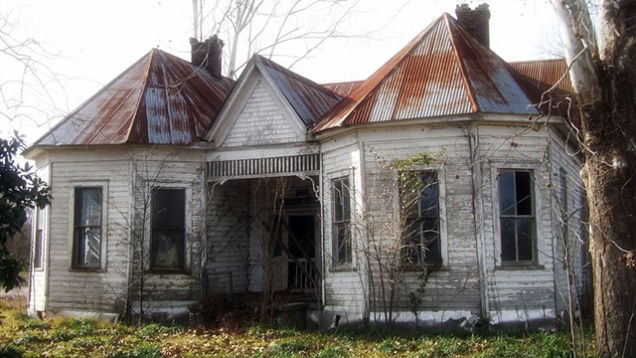Why Owning a Home is a Bad Investment
Post on: 13 Июнь, 2015 No Comment

From: moneyunder30.com
Experiential learning is always better than any lesson from a book. But when it comes to personal finance, too often the experience comes at the price of losing or spending way too much money.
This past summer, my wife and I decided to finish our basement. We met with our contractor, who was honest and hard working. But he’s the first to admit he’s no numbers whiz either — we know that now, anyway. When he originally estimated $15,000, we thought that might be optimistic. So Amy and I planned for $20,000.
But it wound up costing us $40,000. Ouch!
Many factors contributed to this: a shot water heater, issues with plumbing leaks that popped up during the build-out, the contractor failing to use cheap labor for no-brainer tasks such as demolition and hauling debris.
Okay, so we increased our living and working space by a good 25 percent. But the deep dive into the money pit also brought to light this truth: big investments often have bigger carrying costs. (I’ll explain that term in a bit.) And if you look at a home in that light, it’s not the best investment in the world.
That’s right. I’d argue that for most of us, a single-family home or condo is a questionable investment at best, and in all likelihood owning a home is a bad investment, financially speaking.
Before you call me a communist or a home hater, notice that I didn’t say owning a home is a bad living decision. I said owning a home is a bad investment. Most of us grew up hearing that home ownership is the American Dream. But the days of homes as sound investments — strictly from a profit basis — are now rare, if not over.
I’ve come to this conclusion thanks to the work of Rich Arzaga, the founder and CEO of Cornerstone Wealth Management and an adjunct professor at the University of California at Berkeley. Examining 250 properties around the U.S. and going through close to 40 of his client files to project the financial impact of owning real estate versus liquidating it, he found that 100 percent of the time it was better to rent rather than own. As in 100 percent.
This is where carrying costs come in. As the name implies, a carrying cost is what you pay to keep a possession or a piece of property, be it real estate or a box of baseball cards. I’ll give you an easy example: Let’s say you own 10 boxes of rare baseball cards. Those cards are worth $2,000, and they go up in value by 10 percent a year. But you can’t keep them in your basement, so you have to rent a storage unit, which costs you $50 a month.
That $50 becomes a carrying cost — the price you pay to keep the investment instead of liquidating it. And after 40 months of rent, your carrying costs have eaten up all the value of those cards, except for the yearly percentage increases. Wait another year or so, and the rent will eat up every bit of value, and it will actually cost you money to hold onto those valuable cards. But if the cards have sentimental value as the first collection you ever owned, the money lost or made on them may not be the one and only consideration.
It’s like that with homes as well. People have strong feelings about where they live, as they should. But letting those feelings cloud your financial judgment could be dangerous if you’re betting the home will turn into a gold mine. Any homeowner knows the carrying costs can be enormous, even under the best of circumstances: property taxes, mortgage payments, utilities, homeowner’s insurance, property maintenance and routine repairs are just a few categories, offset only by the mortgage interest deduction in most cases. I did a rough calculation of my baseline carrying costs, and it comes to roughly $15,000 a year — before I factor in mortgage payments of $2,200 a month.
And if you have a major repair issue with plumbing, a new roof or a kitchen remodel, prepare to pay big for it. Yes, it’s true that some projects increase the home’s value, often by much more than what you pay. But what if you’re not selling right away? Will that $50,000 kitchen remodel still make a buyer drool 10 or 15 years down the line? Or will it seem dated? And what if you financed it? Does a $50,000 remodel wind up costing you, say, $80,000?
Now, let’s look at the renting scenario. Even if your utilities aren’t covered and you pay renter’s insurance, all major repairs, upgrades and routine maintenance will be covered by the landlord. There are no property taxes. And that leaves you a lot of money to invest in other areas to create wealth.

Greg McBride, a senior analyst at Bankrate.com. agrees with one distinction Arzaga makes. Home ownership is not so much a creator of wealth as a store of wealth, he says. The promise of home ownership is that over the long haul, it can rebate many or perhaps all of your costs, unlike rent, which doesn’t rebate a dime.
So if you hold onto a home for 20 or 30 years and keep it up, chances are it will rise in value and you’ll see a good amount of money when you sell. But you also paid out a lot of money (in taxes, for example) that you’ll never get back. Now factor in all the major expenses. What’s the bottom line?
McBride himself crunched the numbers in a pre-bubble era (2004) for a home purchased at $200,000 by a buyer in the 27 percent marginal tax bracket. Factoring in a 30-year mortgage, $1,200 in annual home insurance, closing costs of $5,500 and maintenance costs of $100 a month, along with property taxes, he calculated that it would take a selling price, 10 years later, of $395,404 just to break even. His conclusion? Homeownership may not be the moneymaker you think it is.
So why own a home? After my basement project finally concluded — three months late and $20,000 over budget — Amy and I held a huge party. Dozens of close friends showed up. They were amazed at the rebuild. We felt proud. Months later, the glow of the rejuvenated space hasn’t faded. Once the coldest, bleakest portion of our house, the basement is now the warmest, brightest and coziest.
Maybe it was a bad financial investment, or a clumsy one. But the project fits into the calculus behind why we bought our property in the first place — quality of life. Here’s what I’ve learned: When it’s time to buy, do it because of the school district it will put your kids in, the amenities in the neighborhood, the community where you can plant your life and family. The vibe of the structure.
If you wind up selling someday and making money, that’s fabulous. I never said it couldn’t be done. But if that’s the main goal, then ask yourself which is more important to you: The house? Or the home?
Whether you own or rent, the value of a home cannot, nor should not, be measured in dollars and cents.














